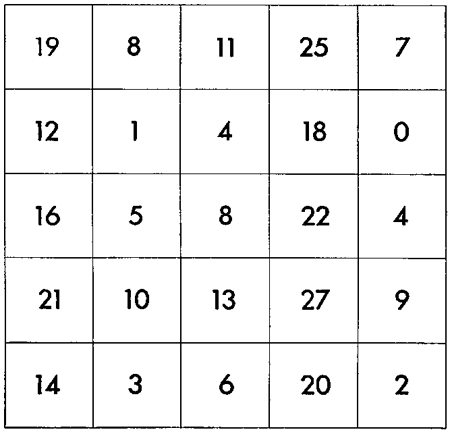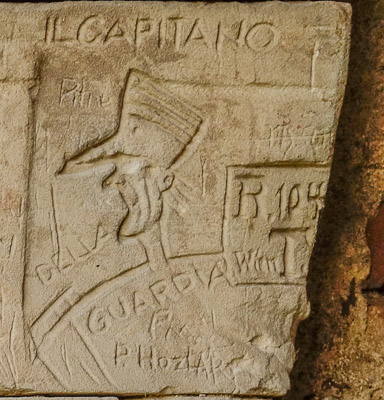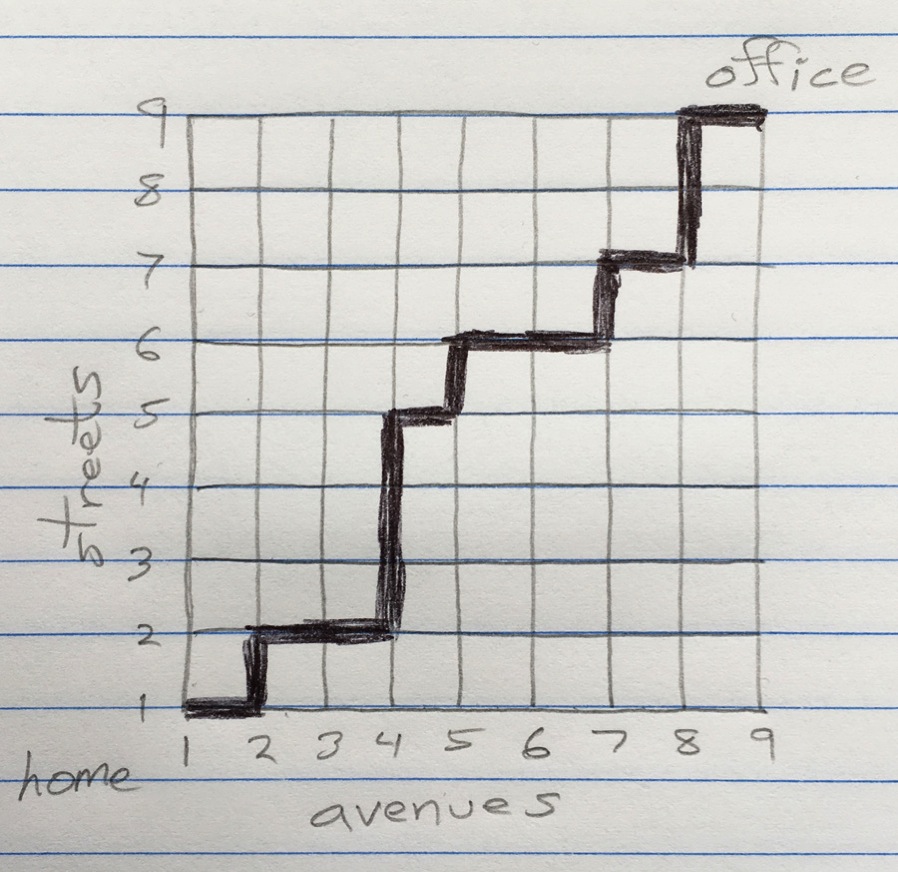What’s So Special About {0,2,3,4,7,11,12,14}?
by Brian Hayes
Published 21 November 2006
Three postings here (1, 2, 3) have discussed what happens when you form all pairwise sums and differences from a finite set of integers. The number of differences almost always exceeds the number of sums—a fact that lends special interest to the occasional exceptional sets, with More Sums Than Differences (MSTD).
A question left up in the air when I last wrote on this subject was the size of the smallest MSTD set. The smallest known set was {0, 2, 3, 4, 7, 11, 12, 14}, which has 26 sums but only 25 differences. This set has eight elements. Could there be an MSTD set with seven or fewer elements? The question has now been answered in the negative by Peter V. Hegarty of the Chalmers University of Technology and Göteborg University. He proves there is no smaller set, and furthermore that {0, 2, 3, 4, 7, 11, 12, 14} is the only MSTD set of size eight. (Apart from other eight-element sets generated from {0, 2, 3, 4, 7, 11, 12, 14} by affine transformations.)
Read all about it at the arXiv.
Note: This article is one of four that discuss the topic of sumsets and diffsets.
- Counting Sums and Differences 17 August 2006
- More on Sums and Differences 20 August 2006
- Sums, Differences, and Surprises 25 August 2006
- What’s So Special About {0,2,3,4,7,11,12,14}? 21 November 2006 (This article)
Publication history
First publication: 21 November 2006
Converted to Eleventy framework: 22 April 2025
Added links to related stories: 14 May 2025



